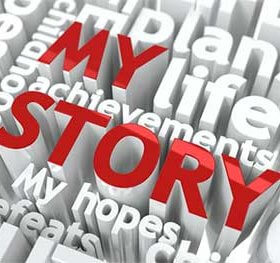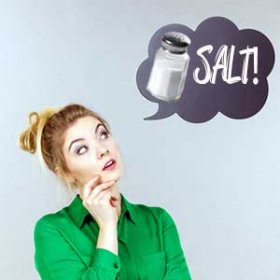Thrive
Why I Don’t Depend on Anyone & Why You Shouldn’t, Either
How many times has your mood taken a nose dive simply because someone didn’t do something or act the way you expected them to?
Can you even count that high?
Has this ever happened to you?
You have a bad day, so you expect your significant other to understand and do something to help lift your mood…
Or maybe your bills are overdue, and your fridge is bare, but your bank account has a whopping $11.00 balance.
What’s your first thought?
For a lot of people, the first thought is “Who can I ask to borrow some money?”.
I’d be willing to bet that you rely on others way too much…
We tend to rely on others to:
- Validate our worth
- To make us feel special or loved
- To help us get our tasks done
- To bolster our finances.
- Tell us what we should do or what direction we should take
We think others can provide better advice than we, ourselves, can.
Most of us feel safer when others are around.
We automatically think that others have answers or abilities that we don’t.
But is that fact?
How often do you rely on others for financial and emotional support?
Here are some reasons that I don’t depend on anyone and tips on how to lessen your dependence on others.
SPONSORED

There’s a Fine Line…
There’s a fine line between needing help and support from others and wanting help and support from others.
By nature, we want to emotionally connect with others.
Some would say social dependence is a biological need, although I’d beg to differ with that.
As a child – yes, but as an adult, it’s not a need.
I’ve read plenty of studies where social connections are correlated with longer lifespans and better physical and mental health, but I still stand by the notion that it’s not a need 😊.

I Stand Apart
My history may be a bit different, but it contributed to my unmitigated ability to stand alone and not depend on anyone for anything.
For that, I guess I was a bit lucky, although it certainly didn’t feel that way at the time.
Let me illustrate…
I was adopted, and the people who adopted me hated me. I won’t go over the whole story, but if you’re interested, you can read it on Amazon.

My mother repeated one phrase to me over and over throughout my childhood:
“Don’t ever ask for anything”.
When you’re a small kid, it’s pretty hard not to ever ask for anything.
I remember sitting at the table one evening, eating dinner with my mother, father and sister.
No one had said anything during the entire meal, and the silence hung in the air like a heavy blanket draped across my shoulders.
I don’t remember what we were eating, but I remember the pile of lima beans on my plate.
The house rule was that you ate whatever my mother put on your plate, without comment. If you didn’t eat it, you sat there all night until you did.
As a kid, those lima beans were my worst enemy.
I hated them worse than anything.
They were incredibly dry and disgusting. Simply chewing them made me gag, but I couldn’t just swallow them whole because they were too big.
I literally choked them down my esophagus.
So, on this particular day, I sat facing that enormous pile of lima beans with tears in my eyes as I imagined the horror awaiting me.
Either I endured the agony of eating them now, or I would be sitting alone at this table all night long.
Then I had an idea.

Salt would make them taste better!
Maybe with salt, I would be able to swallow them without gagging!
So, amidst the ominous silence, I spoke.
“May I please have the salt?”
Holy freaking moly. You would’ve thought that World War III just started.
My mother hauled her 300-pound frame up off her chair and pounced over to me like a swift puma.
Both arms were flailing as she pounded my head – both fists flying.
“I told you to never ask for anything!”.
After enduring her blows for what seemed like an eternity, you can be sure I didn’t forget that lesson ever again.
Such was my upbringing.
Years went by, but I finally got to leave that house and start my independent life when I turned 17.
I knew nothing about the world when I entered it as a free 17-year-old, but I never forgot the lesson that was hammered into my psyche: Never ask for anything!
So, when I had no money to eat, I simply didn’t eat.
When I had no place to stay, I slept on sidewalks.
Later, when I got my own apartment and discovered that my washing machine’s motor had died, I sat down on the ground, grabbed the bottom lip of it, and pulled it toward me.
It moved about an inch.

Then I scooted my butt back a bit and pulled it another inch.
Again and again and again.
It took me 6 hours, but I dragged that washer, inch by inch, through the apartment, out the door, through the grass, over the curb, and down the road until I proudly parked it near to the apartment’s dumpsters, so it could be hauled away.
But I certainly never asked for help!
As an adult, I have never been able to cross that boundary that was drilled into me so many years ago.
I learned to rely on myself, and no one else.

Experience is the Best Teacher (But There is a Caveat)
Granted, living completely non-dependent can be pretty lonely at times.
When I had three small kids, I never asked anyone to babysit or take them for a night so I could have a tiny break.
When I was out of food and had no money to buy any, I simply didn’t eat.
Once, I was temporarily sharing an apartment with a girl. I had spent all my money on rent and bills (She paid none of it).
She wasn’t working, but she had borrowed money from an ex to buy groceries.
I had no money and no food.
For eight days, I watched as she cooked her food and ate it in front of me.
I refused to ask her to share some with me. And she never offered.
And as a result, I didn’t eat a single bite of food for 8 days.
But here’s the thing:
I know, without a shadow of a doubt, that no matter what happens to me in this life, I can handle it.
I KNOW that I don’t need another person.
Not for material things, not for help with tasks, not for money, and not for emotional support.
I can meet my own needs, and for those that I can’t meet, I will probably survive anyway.
Or not.
Either way, I know it’ll be okay.
How do I know this?
Because I’ve already endured hundreds of episodes that have graciously given me the experiential proof I need to know this in the core of my soul without a shadow of a doubt.

I don’t need to tell you the obvious, but I will 😊.
We come into the world alone, and we will leave it alone. No one’s gonna take that journey with us.
In the interim, we get to learn, experience, feel, and connect with others, but you are still alone.
We hope others understand us – what we think, how we feel, what we need and want, but the truth is, few, if any, people will ever truly understand us.
Every time you speak to another person, they hear some words and don’t hear others.

The words they DO head, they filter through their brain – through their current mood, their past experiences, their past trauma, and do forth. Then, your words hit the higher levels of their brain, and they form a response.
They can only understand you completely if you’ve succinctly explained things in a way that resonates with a similar past experience that they’ve had.
Here’s an example:
Let’s assume you’re trying to tell someone about this scary experience you had when you were travelling in Japan.
You were on a train, doing some sightseeing in Tokyo on March 20, 1995, when Aum Shinrikyo released Sarin gas.
You try to explain to your friend how horrifying it was. You describe, to the best of your ability, how your eyes started watering and your throat clamped shut and how you felt like you were minutes away from dying.
But, since you couldn’t speak Japanese and everyone around you was panicking, your level of terror was just out of this world because you couldn’t even convey your feelings to those around you at the time.
Now you’re sitting here trying to explain it to your friend. But your friend has never travelled overseas, let alone to Japan.
He has never experienced the extreme isolation that comes from being unable to communicate to others around you because they speak a different language and don’t understand what you’re trying to say.
He has never had any experience even close to what it feels like to be gassed.
He hasn’t even ridden a crowded public train!
How much of your story do you think he will understand, at least on an emotional level?
Very little, my friend.
Very little.
He probably wants to understand.

But with no prior similar experience, not to mention the fact that he’s secretly thinking about how he has to submit two reports at work for tomorrow’s deadline and has no idea how he’s going to find the time to get them completed…..well, you get the picture.
Communication is not a perfect transference of our thoughts and emotions into someone else’s brain.
So, we are often alone, even in the presence of others.
Even when we’re around those who dearly love us and are near us all the time.
But here’s the thing:
It’s nice to be able to commiserate and empathize with others. It’s nice to hear advice from someone with a different perspective. It’s nice to have someone step in and give us money or whatever it is that we think we need at the moment.
But, it’s NOT necessary.

Why Depending on Others is Not a Good Thing
There are several reasons why I think women, especially, should reduce their dependence on others.
Note that I speak from experience here!
- If you’re one of the many women who walk around thinking, “I need a man!”, you’re at risk of settling for a less-than excellent life. Moreover, it can leave you stuck in a bad relationship for years, if not forever!
You might secretly think, “I deserve better!”, but then you also think, “I can’t make it on my own” or “I could never find someone else!”, and the fear wins out. So, you stay.
Here’s the thing:
If your relationship is bad, and you stay because you think you can’t make it on your own or can’t do any better, pretty much every day, from this day forward, is gonna be kind of miserable for you. Yeah, there will be good days, but there will also be lots of bad days. Probably more bad days than good ones.
You secretly hope that things will get better, and that he or she will change, but be realistic. What are the chances of that happening?
They’re usually pretty slim. In fact, things usually get worse as time passes, not better. Not always, of course, but most of the time.
But, let’s say you have an AWESOME man (or woman – I’m not being gender-biased).
The fact is, he or she could die one day and leave you alone. Or, he could find someone else and walk out on you.
Don’t think it can happen?
It happens a lot – even to women who think they hit the jackpot in the “boyfriend/husband/girlfriend/whatever” lottery.
People change. And they don’t always think and behave the way we think they will, even when we think we know them better than the back of our hand.
As long as you harbor the notion that you NEED someone else, the unspoken fear that one day he/she won’t be there hides in the back of your mind.
It lingers, often in your subconscious mind, and it directs your actions!
Whether you realize it or not.
- When you’re needy, people tend to shy away from you.
Ever notice that?
I’m sure you’ve encountered people who always need something – whether it’s material things, money, constant emotional support, or a pressing need to always have friends/boyfriends/girlfriends, etc.
When those people come around, what’s your first thought?
For many, it’s, “Oh no! Not today!”. So, they slink away, hoping that they can escape before the needy person sees them.
Even though everyone has unmet needs, they don’t want to be reminded of those needs. And needy people remind them of their own unmet needs.
As a result, they’d rather not be around needy people.
It’s true for personal relationships, and it’s true in business.
Don’t be needy!
- Finally, the third reason why “needing” someone else is bad is because, if you feel like you need someone else, you will be disappointed over and over and over again. For as long as you harbor that thought.
You are basing your security, your self-esteem, your confidence, and your actions on someone else!
Your happiest life is the life that is self-directed.
What do I mean by that?
I mean that you do whatever tickles your fancy because you want to do it, not because you’re afraid. And “needs” are often based on fears and fallacies.
Once you rid yourself of the idea that you must depend on someone else for this or that, you will never again need to think, “Well, I can’t do this, because what will Shirley think?”, or “He’ll leave me if I pursue my passion for ____”.
All that nonsense is gone, and you start living life on your own terms, not someone else’s.
And life becomes a hundred times better.
Again, not always.
But definitely overall.
3 Reasons People are Over-Dependent
In my experience, I think there are three main reasons why people are more reliant on others than they ought to be:
1. They Are Insecure
It sounds like a stupid platitude, doesn’t it?
But I think it’s true.
If you truly love yourself and take time to understand how amazingly powerful and competent you are (yep – you are!), you won’t want to depend on others.
Thoughts like:
- “I can’t make it on my own!”
- “I’ll die without _____”
- “I can’t live without ___ right now!”
- “I need ______ and only _____ can give it to me!”
become obsolete.
Once you believe – with all your heart and all your soul – things like:
- “I can do this!”
- “I don’t need him/her”
- “I will find a way; I always do!”
- “It’s okay!”
- “I’m perfectly fine the with the way everything is right this moment!”
Then life changes.
How?
- You start having experiences that prove the truth of those statements.
- You feel free and self-confident.
- You feel in control of your life (most of the time!).
- Your anxiety levels plummet.
- You start walking a bit taller, with your shoulders pulled back, and your chest puffed out a bit more.
- People start clamoring to be near you, wanting some of your confidence and strength to “rub off” on them.
- You start being more honest with yourself and with others, and you don’t care whether others like it or not.
2. They Lack Experience
Maybe I’ve been traveling in the wrong circles, but in my experience, most people simply don’t have the experience they need to know how strong and capable they are.
So many people “play it safe”.
- They don’t travel because flying is scary, or they think they wouldn’t know how to cope in a foreign land with people who can’t speak their language. Or maybe they think they could never break their daily habits or forego their comfort foods to eat strange edibles from foreign lands.
- They speak to everyone they meet with generic, superficial niceties. They never delve deep into their hearts and spew the words that are jumping on the cusp of their souls, dying to come out, simply because they “don’t want to offend” someone.
- When it rains, they run as fast as they can to get to a covered space. When they’re hungry, they grab the nearest available food. When it’s dark, they panic because they think bad things will come get them, and they can’t deal with that. They stay with abusive partners because they feel they couldn’t meet their own needs or cope with loneliness.
But how much experience do they have being hungry for long periods of time? Have they ever purposefully stood in the cold, pouring rain for extended periods of time and truly felt the sensation of their hands going numb and their clothes sticking to the body?
Have they ever entered a scary, dark alley at night, secure in the knowledge that, no matter what happens, they can deal with it?
It’s not that we can’t survive all these situations. We certainly can. It’s just that we haven’t proven to ourselves than we can!
We have no experiences.
Instead, we run from things that are scary or uncomfortable because we think “I can’t handle it!”.
But 98% of the time, if we made ourselves endure what we think we can’t endure, we’d find that it’s not as scary as we imagined. We suddenly learn that we are stronger and more capable than we ever thought.
3. We Misuse the Word “Need”
How we talk to ourselves makes a huge difference in the quality of our life, moment by moment, day by day.
We throw words around without considering the implications of them or even their true definitions.
The mind is way more powerful than most people realize, and words direct the mind. The mind carries that forth to direct our actions and our experiences.
The words you use inside your own head can instantly cause your brain to release a cascade of chemicals that flood your body and make your heart race, your pupils dilate, and your chest tighten.
A different set of words can do just the opposite. They can stimulate the release of electrical and chemical signals that slow your breathing, direct your blood to flow toward the GI tract, stimulate your immune system, and halt the release of stress hormones like cortisone.
All because of the words we use.
I hear people walking around all the time saying things like:
- “I need a boyfriend!”
- “I need a hamburger!”
- “I need you to ____”
Those are not needs.
They are wants.
From the conversations I hear, I’d say 97% of the time, all the words that follow “I need _________” are nothing but lies. They aren’t needs at all.
A need is something that is required for life or death.
“I need air to breathe”.
Definitely a need 😊.
“I need someone to help me wake up in the morning”.
Not a need. That’s a want.
Be precise with your speech and figure out what you need versus what you merely want.
Then start speaking accurately, both to others and to yourself.

Start This 4-Step Action Plan Today
If you find that you rely on others more than you should, here are 4 exercises you can implement today to start relying on the only person you can and should rely on – yourself.
1. Monitor Your Words
Keep a diary.
You can carry a notebook and pen in your purse, download a diary app, or simply open the Memo app on your phone.
Every time you catch yourself thinking, “I need ____________”, write it down. Keep a running record of all the things you think you “need”.
At the end of each week, set aside 20 minutes, sit where you won’t be disturbed, pull out your list, and ask yourself:
- Is this really a need? Or is it just a want? Is my terminology correct?
- What are some ways I could meet this need myself, with no outside help?
Be creative in your thinking, and list all possible options, no matter how crazy they sound at first. Write them all down.
- If feasible, act on the options you’ve listed, either now or in the future. Or, if that seems like too much, simply make a plan on how you could possibly implement them. Write that
2. Expand Your Experiences
Experience is the greatest teacher. Once you’ve experienced something, you just know.
Make a plan to expand your experiences. Focus on doing things that you think you can’t do or that are too scary for you to do.
Of course, it goes without saying that I’m not encouraging you to put yourself directly in harm’s way.
If you want to be able to walk into a scary, dark alley alone at night, at least prepare for that and take some self-defense classes first!
Here are some options:
- Make a list of all the things you think you need others for. Money? Company? Validation of your self-worth? Permission to do what you want to do or say what you want to say? Killing spiders in the house? Someone to travel with you because you don’t feel like you can travel alone?
Really think about it, and list at least 20 items. 50 is better.
- Make an effort to do one thing every single day to step out of your comfort zone. Work on ways you can meet those “needs” on your list yourself. It may take some creative thinking, but you can do it.
Take baby steps if need be.
Need company? Hate being alone? Pledge to spend 1 hour every day completely alone. Start to get comfortable with the feeling.
Need someone to help with finances? Set a goal to earn an extra $50 a month with your own side hustle. Then next month, if you meet your goal, increase it to $100. And so on. Make a list on how you can reduce spending. Open a savings account and put $15 in it. Baby steps.
3. Try It Short-Term
How many times in your life have you believed that you couldn’t do something, until you were forced to do it? Then you found out you actually could do it!
You have some of those experiences tucked away, so wrack your brain to remember them.
Remember when you couldn’t ride a bike and it seemed like you would never “get” it?
Write all those experiences down as proof that you can do what you thought you couldn’t.
Then, set a time frame to do a personal challenge. There are a few ways you could set it up:
- Set a time frame, like 3 days, a week, or a month, and vow to not depend on anyone for anything during that time period. Whatever happens, whatever needs done, you find a way to do it yourself. Then do it and keep a daily journal to record your progress and obstacles.
- Pick the one thing on your list of needs (see above) that you sincerely think is the one thing you absolutely need someone else for. Choose a specific duration, and promise yourself that you will NOT rely on anyone for that one thing for the duration of your challenge (1 day, a week, a month, etc). You might have to get creative with figuring out how you can do it yourself, but I know you can do it!
4. Remove the Labels
People throw around labels because they think that makes them understand people. I hate labels for lots of reasons, but we use labels on ourselves, too.
If we define ourselves in a certain way, we will usually act to reinforce the label we’ve given ourselves. Did you know that? The brain is amazing 😊.
- Make a list of all the labels you’ve given yourself. For example, “I’m not a morning person (I’m a night owl)”, “I can’t live without coffee (addicted to coffee)”, “I never wear red”, “I’m not that kind of person (fill in your own adjectives or verbs)”, “I’m super emotional”, etc. You can throw in the labels others have given you, too, if you agree with them.
- For the next week, do something each day that makes that label false.
For example, “I’m a night owl. I can’t function in the mornings”. à for an entire week, wake up at 6 am and get active. Walk, jog, get some work done before everyone else gets up.
No matter what it is, find a way to prove to yourself that labels do NOT define you. You can do or be whatever you want to. What you “are” isn’t set in stone. You choose who you want to be today, and it doesn’t have to be the same person you were yesterday.
- Include things that you rely on others for. For example, “I’m afraid of spiders! I can’t kill one myself!”. Find a way to kill (or humanely remove) a spider. Do it for each “I need someone because I’m ____ (or “I’m not ______”)” on your list.
- If you’d like to take this exercise a step further, expand it to include others.
Write down all the labels you give your kids, spouse, co-workers, neighbors. “He’s stupid”, “She’s inconsiderate”, “He’s an asshole”, “She has no fashion sense”.
Then, observe those people for a week or a month and try to find some instances where they weren’t what the label says they are. You can look for an example of when the asshole was actually kind. Look for evidence that the “stupid” person isn’t always stupid. And remind yourself that labels are not all-inclusive, nor are they accurate all the time. Remember to catch yourself when throwing labels at yourself or others.
Kids, especially, will adopt their behaviors in order to live up to the labels people give them.
Throw out the labels!

Would you like to genuinely proclaim, “I don’t depend on anyone!”?
Start Right Now!
Download a Condensed (and handy!) List if These 4 Action Steps to Carry With You
![]()

You Are So Very Capable!

Who you were yesterday is not who you need to be today!
Each day, we get a new chance to be whoever we want to be and to do whatever we want to do.
If you’ve been overly dependent on others and want to be more self-reliant, be that person today!
Start small, take baby steps, but do it consistently!
Before you know it, you’ll be stronger and full of confidence. You’ll be that person who others secretly want to be.
Download a copy of the 4 action steps above and get started today!




